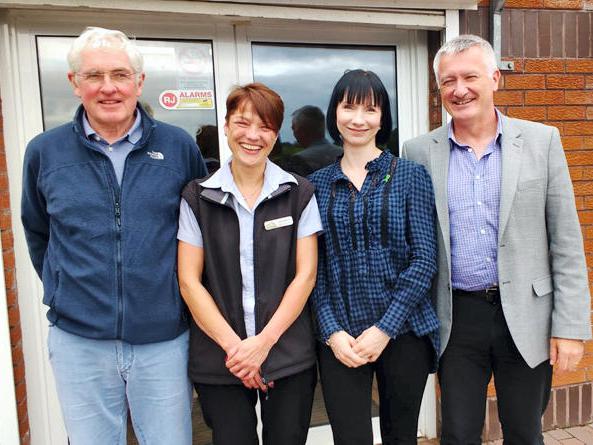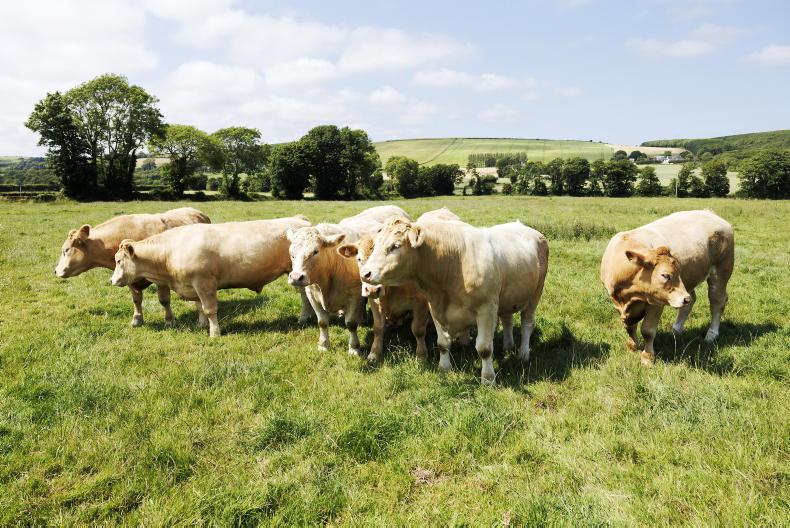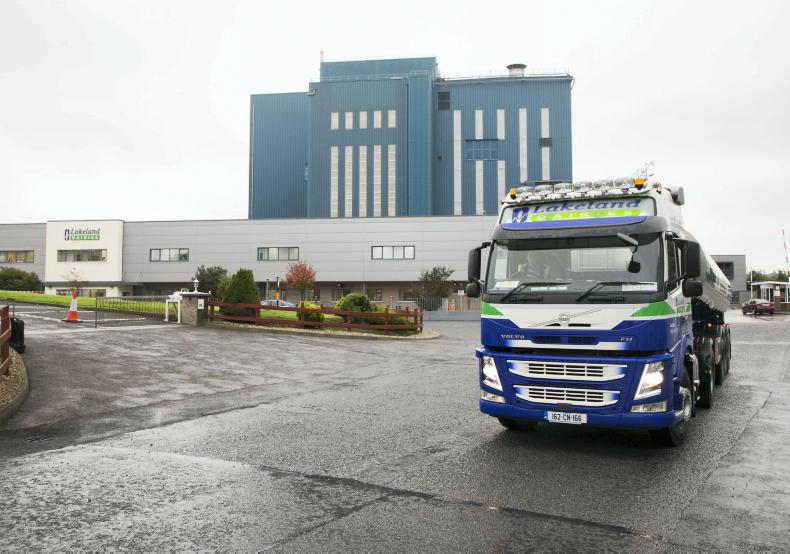The Republic of Ireland is a key target market for large corporate veterinary companies looking to continue the rapid growth that has already seen the consolidation of veterinary practices across the UK.
Estimates suggest that up to 50% of veterinary care in Northern Ireland (NI) and Britain is now in the hands of a small number of corporates, which have used a mix of asset finance or bank loans to fund the acquisition trail.
In NI, CVS Group has recently acquired a number of mixed animal practices, including in Armagh, Tyrone and Fermanagh, while Independent Vetcare (IVC) has practices in Down and Derry, plus some veterinary businesses specialising in small animal work.
The latest corporate to come to NI is VetPartners, when it acquired the mid-Ulster-based Parklands Veterinary Group business at the start of June.
Among these corporates, Bristol-headquartered IVC has rapidly grown to be the largest provider of veterinary care in Europe, and is rumoured to now have an enterprise value of approximately €3bn.
Norfolk-based CVS Group is also a major player, and is the largest integrated provider of veterinary services in the UK to include laboratory and crematoria businesses along with its veterinary practices.
Having been formed in 2011, CVS reported a turnover of £167.3m (€186m) in the year ending June 2015
In the summer of 2018, it acquired its first practices in Ireland, Troytown Greyabbey Equine in Kildare, and a small animal practice, Gilabbey Veterinary Hospital in Cork.
Having been formed in 2011, CVS reported a turnover of £167.3m (€186m) in the year ending June 2015, which has nearly doubled to £327.3m (€364m) in the last accounts to June 2018.
That high growth performance drove share price to 1,500p/share in October 2017, although it has since tailed off, with CVS profits squeezed due to higher wage costs (because of an industry-wide shortage of vets) and the acquisition of lower-margin farm vet practices. Net debt at the end of 2018 stood at £116.8m (€130m).
In the latest interim report, CVS Group chair Richard Connell noted that the business will focus on improving margins in farm and equine practices, and also in its Netherlands operations.
However, he also alluded to the fact that opportunities to acquire more businesses in the UK are limited, and the company will look to Ireland and the Netherlands for future growth.
That point was put to James Cahill, CVS international operations director.
We see Ireland as a significant growth area for us over the next few years. The opportunities for further growth in the UK are smaller
“We are currently talking to a lot of veterinary practices in Ireland. We have reached out to some, the rest have come to us – it is about 50:50. I think there are a lot of benefits we can bring to veterinary care in Ireland. We see Ireland as a significant growth area for us over the next few years. The opportunities for further growth in the UK are smaller,” said Cahill.
He maintained that the decision on what practices to buy isn’t just about money, but also the reputation of the business and its location. Ideally, they acquire a cluster of practices in an area, which then allows the various practices to pool resources and share vets.
That strategy links to perhaps one of the greatest concerns of farmers around corporate ownership – the provision of out-of-hours care.
Cahill strongly rejects any suggestion that the current 24-hour service offered to farmers is under threat.
Our aim at CVS is to improve the out-of-hours service, making it better for our vets and to provide a better level of care for our clients
“As vets we all sign up to a professional code of conduct that requires us to provide 24-hour emergency first aid and pain relief for animals in our care. Our aim at CVS is to improve the out-of-hours service, making it better for our vets and to provide a better level of care for our clients.”
He argues that by sharing resources across CVS practices you end up with rotas where a vet is more likely to be on duty one night in five, rather than one night in two.
“If you have vets working a one-night-in-five rota then inevitably you are providing a better level of care for your clients,” he said.
He also points to the on-going difficulties that farm veterinary practices have had in retaining young vets. The reality is that small animal work or taking a job in a government body offers a more attractive work life balance.
“We have lost so many, we have ended up with a shortage. Our aim is to change that. We currently have 220 young vets on our new two-year graduate programme. We want to be the best clinical employer there is,” said Cahill.
Prices
But ultimately the debt that these large corporate companies have accumulated buying up practices will have to be paid for, and profits will have to be made to satisfy shareholders and investors.
We don’t go into an area and just jack up the prices. There is too much competition to allow that to happen
So does that mean farmers will have to pay more for veterinary care? “We don’t go into an area and just jack up the prices. There is too much competition to allow that to happen – it would not be sustainable,” responded Cahill.
However, he argues that if a CVS practice is able to provide better levels of care, engage with clients around training, education and more on-farm advice, then there “is an opportunity for us to improve margins”.
Where the corporate company can really drive economies of scale is in the purchase of drugs. CVS has its own clinical advisory committee, made up mainly of vets, that decide what drugs the company wants to use.
“Obviously we have the buying power to acquire drugs at lower prices than smaller vet practices and independents. That brings savings for us, which we are able to pass on to the farmers,” said Cahill.
Read more
Corporate vets: a new dawn
The Republic of Ireland is a key target market for large corporate veterinary companies looking to continue the rapid growth that has already seen the consolidation of veterinary practices across the UK.
Estimates suggest that up to 50% of veterinary care in Northern Ireland (NI) and Britain is now in the hands of a small number of corporates, which have used a mix of asset finance or bank loans to fund the acquisition trail.
In NI, CVS Group has recently acquired a number of mixed animal practices, including in Armagh, Tyrone and Fermanagh, while Independent Vetcare (IVC) has practices in Down and Derry, plus some veterinary businesses specialising in small animal work.
The latest corporate to come to NI is VetPartners, when it acquired the mid-Ulster-based Parklands Veterinary Group business at the start of June.
Among these corporates, Bristol-headquartered IVC has rapidly grown to be the largest provider of veterinary care in Europe, and is rumoured to now have an enterprise value of approximately €3bn.
Norfolk-based CVS Group is also a major player, and is the largest integrated provider of veterinary services in the UK to include laboratory and crematoria businesses along with its veterinary practices.
Having been formed in 2011, CVS reported a turnover of £167.3m (€186m) in the year ending June 2015
In the summer of 2018, it acquired its first practices in Ireland, Troytown Greyabbey Equine in Kildare, and a small animal practice, Gilabbey Veterinary Hospital in Cork.
Having been formed in 2011, CVS reported a turnover of £167.3m (€186m) in the year ending June 2015, which has nearly doubled to £327.3m (€364m) in the last accounts to June 2018.
That high growth performance drove share price to 1,500p/share in October 2017, although it has since tailed off, with CVS profits squeezed due to higher wage costs (because of an industry-wide shortage of vets) and the acquisition of lower-margin farm vet practices. Net debt at the end of 2018 stood at £116.8m (€130m).
In the latest interim report, CVS Group chair Richard Connell noted that the business will focus on improving margins in farm and equine practices, and also in its Netherlands operations.
However, he also alluded to the fact that opportunities to acquire more businesses in the UK are limited, and the company will look to Ireland and the Netherlands for future growth.
That point was put to James Cahill, CVS international operations director.
We see Ireland as a significant growth area for us over the next few years. The opportunities for further growth in the UK are smaller
“We are currently talking to a lot of veterinary practices in Ireland. We have reached out to some, the rest have come to us – it is about 50:50. I think there are a lot of benefits we can bring to veterinary care in Ireland. We see Ireland as a significant growth area for us over the next few years. The opportunities for further growth in the UK are smaller,” said Cahill.
He maintained that the decision on what practices to buy isn’t just about money, but also the reputation of the business and its location. Ideally, they acquire a cluster of practices in an area, which then allows the various practices to pool resources and share vets.
That strategy links to perhaps one of the greatest concerns of farmers around corporate ownership – the provision of out-of-hours care.
Cahill strongly rejects any suggestion that the current 24-hour service offered to farmers is under threat.
Our aim at CVS is to improve the out-of-hours service, making it better for our vets and to provide a better level of care for our clients
“As vets we all sign up to a professional code of conduct that requires us to provide 24-hour emergency first aid and pain relief for animals in our care. Our aim at CVS is to improve the out-of-hours service, making it better for our vets and to provide a better level of care for our clients.”
He argues that by sharing resources across CVS practices you end up with rotas where a vet is more likely to be on duty one night in five, rather than one night in two.
“If you have vets working a one-night-in-five rota then inevitably you are providing a better level of care for your clients,” he said.
He also points to the on-going difficulties that farm veterinary practices have had in retaining young vets. The reality is that small animal work or taking a job in a government body offers a more attractive work life balance.
“We have lost so many, we have ended up with a shortage. Our aim is to change that. We currently have 220 young vets on our new two-year graduate programme. We want to be the best clinical employer there is,” said Cahill.
Prices
But ultimately the debt that these large corporate companies have accumulated buying up practices will have to be paid for, and profits will have to be made to satisfy shareholders and investors.
We don’t go into an area and just jack up the prices. There is too much competition to allow that to happen
So does that mean farmers will have to pay more for veterinary care? “We don’t go into an area and just jack up the prices. There is too much competition to allow that to happen – it would not be sustainable,” responded Cahill.
However, he argues that if a CVS practice is able to provide better levels of care, engage with clients around training, education and more on-farm advice, then there “is an opportunity for us to improve margins”.
Where the corporate company can really drive economies of scale is in the purchase of drugs. CVS has its own clinical advisory committee, made up mainly of vets, that decide what drugs the company wants to use.
“Obviously we have the buying power to acquire drugs at lower prices than smaller vet practices and independents. That brings savings for us, which we are able to pass on to the farmers,” said Cahill.
Read more
Corporate vets: a new dawn









SHARING OPTIONS